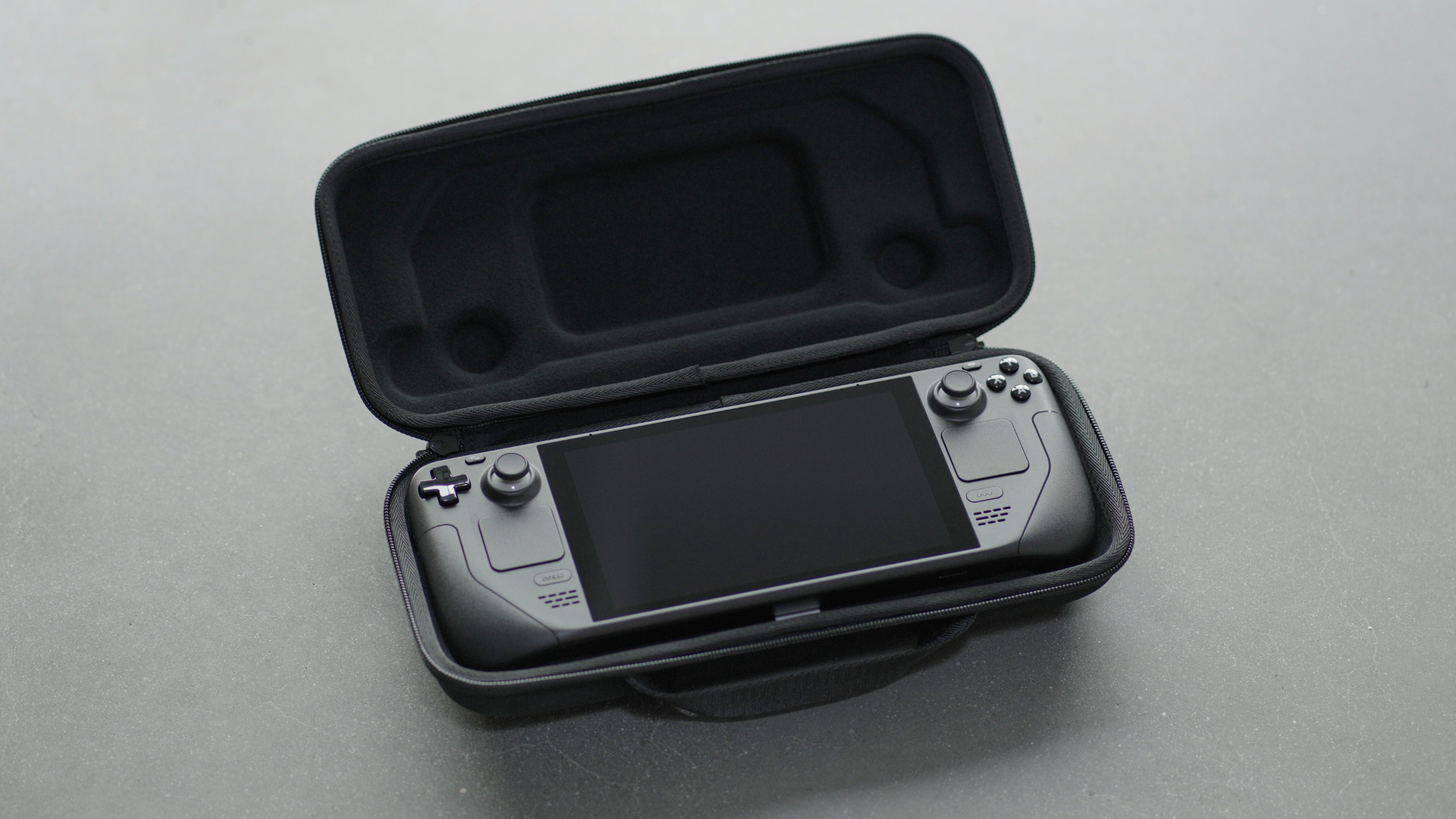Valve has no plans to raise Steam Deck pricing
The true champion of cheap PC gaming

Sign up for breaking news, reviews, opinion, top tech deals, and more.
You are now subscribed
Your newsletter sign-up was successful
Valve has announced that there are no plans to increase the price of its Steam Deck handheld despite the huge popularity of the system. In an interview with IGN, Gabe Newell (head of Valve) confirmed that while pricing the petite PC so low had been tricky, he anticipates that the current MSRP will remain fixed for now.
"I mean, part of what you do with pricing is you're making a promise to customers. [...] But we wouldn't expect to be adjusting the SKU pricing," Newell said during the interview, though he expressed surprise that the more expensive $649 (around £489 / AU$899) Steam Deck model that features 512GB of NVMe SSD internal storage and an anti-glare etched glass, had outsold the affordable $399 (around £299 / AU$550) entry-level model.
You're only getting 64GB of eMMC storage on the entry-level version of the handheld, a type of flash-based internal data storage that's often found in tablets and smartphones. This is typically cheaper than SSDs, but vastly inferior when working with large files like games, which may have swayed some folks to opt for the pricier flagship Steam Deck model.
Given its popularity, it's little wonder that Newell also expressed an interest in developing other variations with even higher specifications, confirming that Valve is considering additional models of the handheld.
"Absolutely. [...] That's the great thing about the PC market. Right? That it just continues [...] Like a year from now, AMD is going to have better parts. Right? A year from now, all the component suppliers are going to either expand capacity, expand performance, or reduce costs. So, we're absolutely going to ride that as hard as we can. That's part of the thing about being in the PC space is everybody's essentially driving everybody else's price performance improvements over time."
With the messy state of the current computing components market, the Steam Deck may be the most affordable gateway into the world of PC gaming for newcomers who only want a low-power system for some time. With any luck, stock will be plentiful enough to meet demands even if the chip shortage rears its ugly head again.
Analysis: A truly affordable gaming PC
Gaming laptops won't be everyone's cup of tea, but they offered a portable means to play PC games before the Steam Deck was even a twinkle in Newell's eye. While many options on the market haven't been affected as much by the chip shortage as components like desktop graphics cards, the Steam Deck still has the potential to be a far more attractive alternative to desktop gaming than they ever were.
That is of course if it performs admirably when in docked mode. The official Stead Deck Dock will feature an array of ports allowing you to hook it up to your router with an Ethernet cable, or an external display via HDMI or DisplayPort. You're also getting enough USB-A and USB-C ports to plug in all your required peripherals, but sadly the Dock isn't actually expected until some time after Q2 2022 and we still don't know how much it will actually cost.
Sign up for breaking news, reviews, opinion, top tech deals, and more.
For now you can use a capable USB-C bub, but it won't be as neat as the real thing. We would suggest looking into a decent wireless gaming mouse to keep your desk space clear.
Even some of the most affordable gaming laptops on the market are significantly more expensive than the flagship Steam Deck, and with so many positive reviews starting to emerge concerning the Steam Deck's performance, this could be the most affordable route into PC gaming for some time.
- These are the best Steam games
Via GamesRadar
Jess is a former TechRadar Computing writer, where she covered all aspects of Mac and PC hardware, including PC gaming and peripherals. She has been interviewed as an industry expert for the BBC, and while her educational background was in prosthetics and model-making, her true love is in tech and she has built numerous desktop computers over the last 10 years for gaming and content creation. Jess is now a journalist at The Verge.
